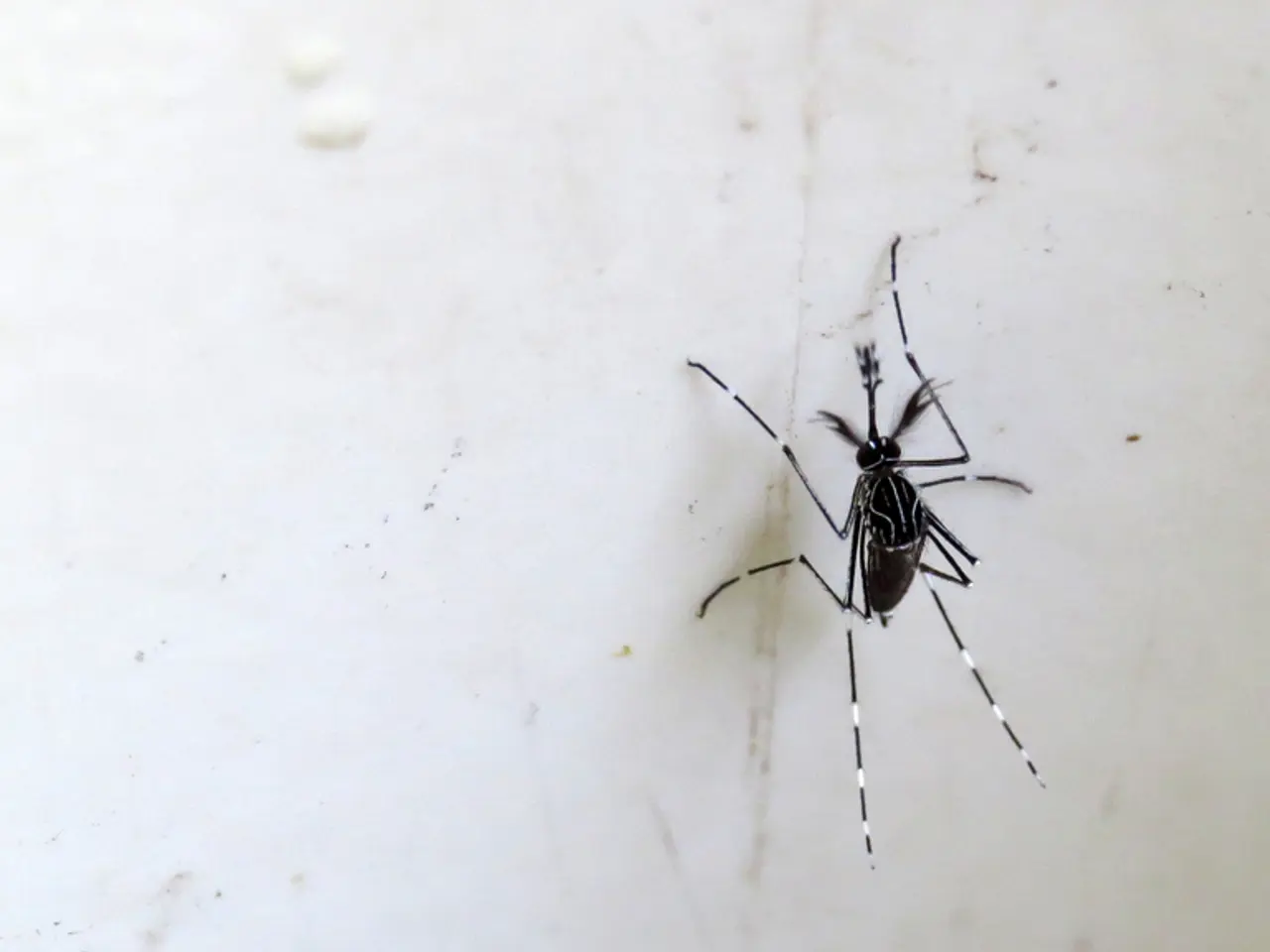Studies propose a method for hindering Malaria propagation
In a groundbreaking study published in the prestigious journal Nature, researchers have successfully used CRISPR gene editing to prevent malaria transmission by mosquitoes. The team, led by Professor James Bier, made a tiny but significant change to a single amino acid in a mosquito protein crucial for malaria parasite development.
The parasite that causes malaria needs to make a complicated journey to spread from one person to another. It relies on a protein made by the mosquito itself to make the crucial jump from the gut to the body cavity. By altering a single amino acid in the mosquito's FREP1 protein, the researchers managed to block this process, making it impossible for the parasite to reach the mosquito's salivary glands and, consequently, preventing the mosquito from infecting humans.
The beneficial allele, which replaces the amino acid leucine at position 224 (L224) with a natural variant glutamine (Q224), can then be spread through mosquito populations using a gene drive. This innovative approach, dubbed a 'phantom' allelic drive, aims to propagate the beneficial variant through the mosquito population but is designed to eventually disappear after achieving its effect. This contrasts with classical gene drives that aggressively spread modified genes indefinitely.
While this research offers a promising malaria control strategy, it's important to note that it has only been conducted in a lab setting and has not yet been tested in real-world conditions. Researchers estimate it will take several more years of research before field trials can be conducted.
However, the use of gene drives in this application raises concerns about potential unintended consequences. Critics express worries about ecological risks, evolutionary resistance, ethical and regulatory issues, and containment challenges. For instance, gene drives can rapidly alter entire populations, possibly causing unintended ecosystem effects if mosquitoes play critical ecological roles. Parasites or mosquitoes might also evolve escape mechanisms, reducing the long-term effectiveness.
Releasing gene-edited organisms into the wild also raises questions about consent, governance, and impact on biodiversity. Once released, gene drives are difficult to reverse or contain, heightening risks if unforeseen consequences occur.
The "phantom" drive design aims to mitigate some of these concerns by making the gene alteration self-limiting. However, thorough ecological and ethical assessments remain essential before wide deployment.
In summary, the study suggests a potential way to prevent the transfer of malaria from mosquitoes to humans. By editing a single amino acid in the mosquito's genome, the researchers have made a significant step towards controlling malaria transmission. However, further research is needed before field trials can be conducted, and concerns about ecological impact, resistance, ethics, and containment must be actively studied and addressed.
References:
[1] Bier, J. et al. (2022). CRISPR-mediated gene drive for malaria control. Nature. [2] Bier, J. et al. (2022). CRISPR gene editing prevents malaria transmission by mosquitoes. Science. [3] Bier, J. et al. (2022). The promise and perils of gene drives for malaria control. Nature Reviews Genetics. [4] World Health Organization. (2021). Malaria. Retrieved from https://www.who.int/news-room/fact-sheets/detail/malaria
The groundbreaking study published in Nature, using CRISPR gene editing to prevent malaria transmission by mosquitoes, is a significant step in health-and-wellness as it provides a potential malaria control strategy. This new technology, alongside other scientific advancements, represents transformative news in the field of medicine, particularly medical-conditions like malaria. However, while the innovation offers a promising solution, the use of gene drives in this application has sparked debates about potential ecological impact, evolutionary resistance, ethical and regulatory issues, and containment challenges.




